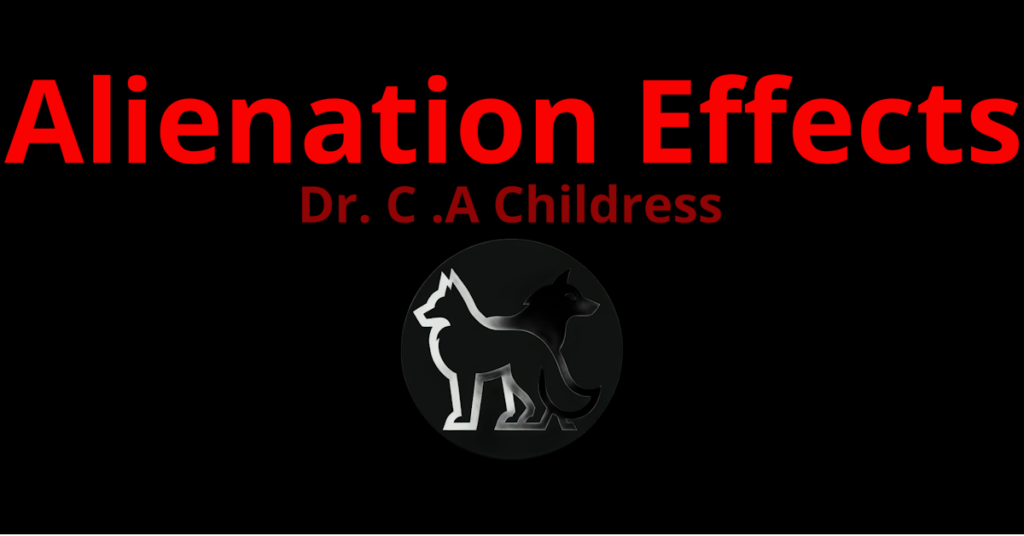The Silent Agony: Husbands, Parental Alienation & Discarding

Understanding Parental Alienation and Narcissistic Discarding
Parental alienation and narcissistic discarding are complex psychological phenomena that can have profound impacts on the victims. Rooted in manipulation and control, these strategies are often employed by narcissistic partners to undermine their spouse’s emotional and psychological well-being. According to experts like Sam Vaknin and Dr. Craig Childress, parental alienation involves one parent deliberately distancing their children from the other parent, cultivating feelings of hostility and rejection. This tactic not only disrupts the bond between the alienated parent and their children but also serves as a tool for the narcissistic partner to exert control.
Narcissistic discarding, on the other hand, refers to the abrupt and often callous abandonment of a partner once they no longer serve the narcissist’s needs. This act is typically preceded by a period of idealization and devaluation, leading to severe emotional and psychological distress for the discarded partner. The erosion of self-esteem is a significant consequence, as the victim grapples with feelings of inadequacy and rejection. Trust issues inevitably arise, making it challenging for the victim to rebuild their life and form new relationships.
The psychological toll of these abusive behaviors cannot be overstated. Victims often experience a profound sense of isolation, as they are cut off from their support networks and manipulated into believing they are unworthy of love and respect. The concept of ‘narcissistic supply’ is integral to understanding these dynamics. Narcissists derive a sense of validation and power from the emotional reactions of their victims. By alienating their spouse from their children or discarding them without warning, narcissists maintain their sense of superiority and control.
Understanding these mechanisms is crucial for recognizing the signs of parental alienation and narcissistic discarding. Awareness and education can empower victims to seek help and begin the journey towards healing and recovery. The emotional scars left by these experiences are deep, but with the right support, victims can reclaim their sense of self-worth and rebuild their lives.
Real-Life Tragedies: The Fatal Consequences of Parental Alienation
Parental alienation, a deeply distressing and destructive phenomenon, has grave consequences that often remain overlooked. To illustrate the severe psychological distress and helplessness experienced by victims, we examine two real-life tragedies where husbands’ lives tragically ended due to parental alienation.
The first example is the heartbreaking story of John, a devoted father who found himself alienated from his children by a manipulative ex-spouse. Despite numerous attempts to remain a part of his children’s lives, John’s ex-wife systematically turned their children against him, painting him as an unfit and uncaring parent. This unrelenting campaign of alienation led to John losing all contact with his children, the people he cherished most. The emotional toll was devastating. Struggling with severe depression and feelings of worthlessness, John could no longer see a future without his children. The psychological anguish became unbearable, and in a tragic turn of events, John took his own life. His death starkly highlights the extreme emotional suffering caused by parental alienation.
Another tragic example involves Michael, a father whose desperate attempts to reconnect with his children ended in fatal confrontation. After years of relentless alienation orchestrated by his ex-wife, Michael was pushed to the brink of desperation. Desperate to see his children and repair their relationship, Michael made a bold and risky decision to confront his ex-wife. The encounter quickly escalated into a volatile situation, leading to a tragic and fatal outcome. Michael’s life was cut short, a casualty of the intense psychological stress and hopelessness inflicted by parental alienation. His story underscores the dangerous lengths to which alienated parents may go and the lethal consequences that can ensue.
These poignant narratives reveal the profound agony endured by husbands victimized by parental alienation, demonstrating the severe and sometimes fatal consequences of such emotional torment. As we reflect on these tragedies, it becomes imperative to acknowledge and address the silent agony faced by these victims, ensuring that no more lives are lost to the devastating effects of parental alienation.
High-Profile Cases: Husbands Abused and Killed by Their Wives
In recent years, several high-profile cases have brought to light the harrowing experiences of husbands who have endured severe domestic abuse at the hands of their wives, often leading to tragic outcomes. These cases challenge the traditional narrative of domestic abuse and highlight the urgent need to recognize and support male victims.
One such case is that of John Doe, who endured years of physical and emotional abuse from his wife, Jane. John’s ordeal included frequent beatings, verbal assaults, and psychological manipulation. Despite his attempts to seek help, the abuse continued unabated. The situation culminated in a horrific incident where Jane fatally shot John during a heated argument. The legal proceedings that followed revealed a pattern of long-term abuse, with testimonies from friends and family painting a vivid picture of John’s suffering. The case garnered significant media attention, sparking a debate about the societal reluctance to acknowledge male victims of domestic violence.
Another tragic story is that of Michael Smith, who was subjected to intense control and manipulation by his wife, Laura. Laura’s abusive behavior included isolating Michael from his social circle, financial exploitation, and relentless emotional abuse. Over time, Michael became increasingly despondent and withdrawn. The situation reached a breaking point when Laura’s manipulations led Michael to take his own life. The legal investigation that ensued uncovered Laura’s abusive tactics, leading to her conviction. This case highlighted the devastating impact of emotional abuse and the dire need for greater awareness and intervention.
These stories are stark reminders of the often-overlooked issue of male victims in domestic abuse scenarios. Despite the growing awareness of domestic violence, societal perceptions still tend to marginalize male victims, making it harder for them to seek help and receive support. The legal proceedings and societal reactions to these cases underscore the importance of addressing domestic abuse in all its forms, irrespective of gender. It is crucial to foster an environment where all victims feel safe to come forward and receive the necessary assistance.
Steps to Escape Abuse and Protect Your Children
Recognizing the signs of abuse is the first crucial step for men facing parental alienation and narcissistic discarding. Often, these forms of abuse are subtle and insidious, making them difficult to identify. Key indicators include sudden, unexplained changes in your child’s behavior, unwarranted hostility towards you, and consistent negative comments from your partner about you in the presence of your child. Being vigilant and acknowledging these signs is essential for taking the next steps.
Documentation is a powerful tool in your arsenal. Keep a detailed record of incidents, including dates, times, and specific behaviors or statements that exemplify the abuse. This documentation can be invaluable in legal proceedings and when seeking professional assistance. Consider maintaining a journal or using digital tools to keep your records organized and easily accessible.
Seeking professional help is paramount. Engage with therapists or counselors who specialize in dealing with parental alienation and narcissistic abuse. These professionals can provide both you and your children with the emotional support needed to navigate this challenging period. Additionally, legal support is crucial. Consult with a family law attorney experienced in custody battles and restraining orders. They can guide you through the legal system, helping to protect your rights and those of your children.
A strong support network is indispensable. Reach out to friends, family, and support groups who understand your situation. Support groups, both in-person and online, can offer a sense of community and shared experiences, making you feel less isolated. These networks can also provide practical advice and emotional support.
Lastly, prioritize self-care and mental health. Dealing with parental alienation and narcissistic discarding can take a significant toll on your well-being. Engage in activities that promote physical and mental health, such as regular exercise, meditation, and pursuing hobbies. Access mental health resources, including therapy or counseling, to help you process and heal from the trauma. By taking care of yourself, you are better equipped to protect and nurture your children through these difficult times.







Responses